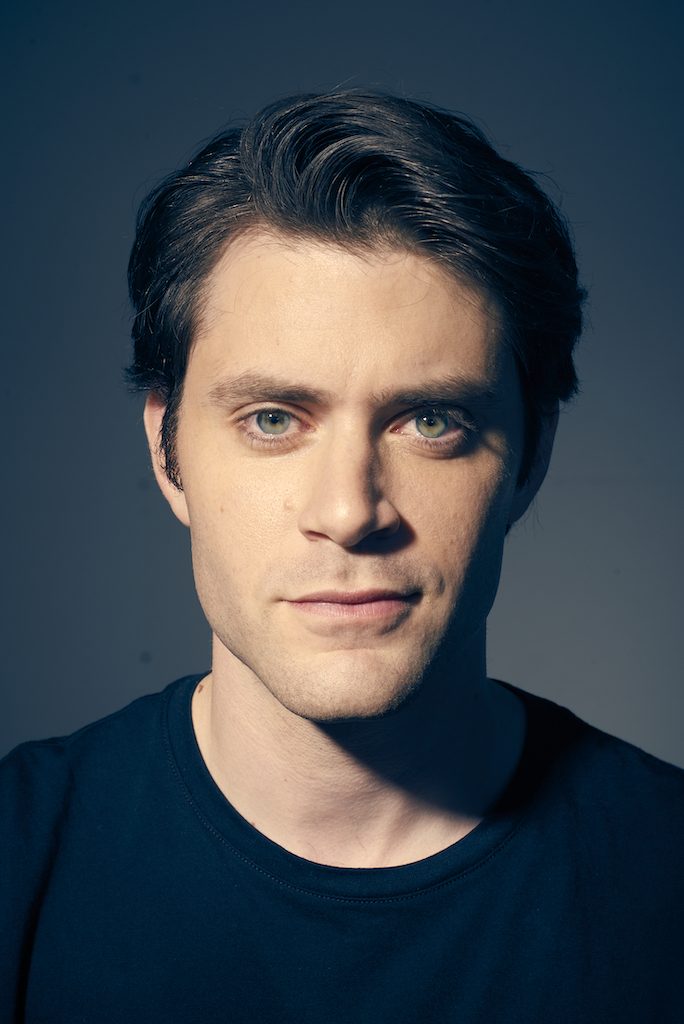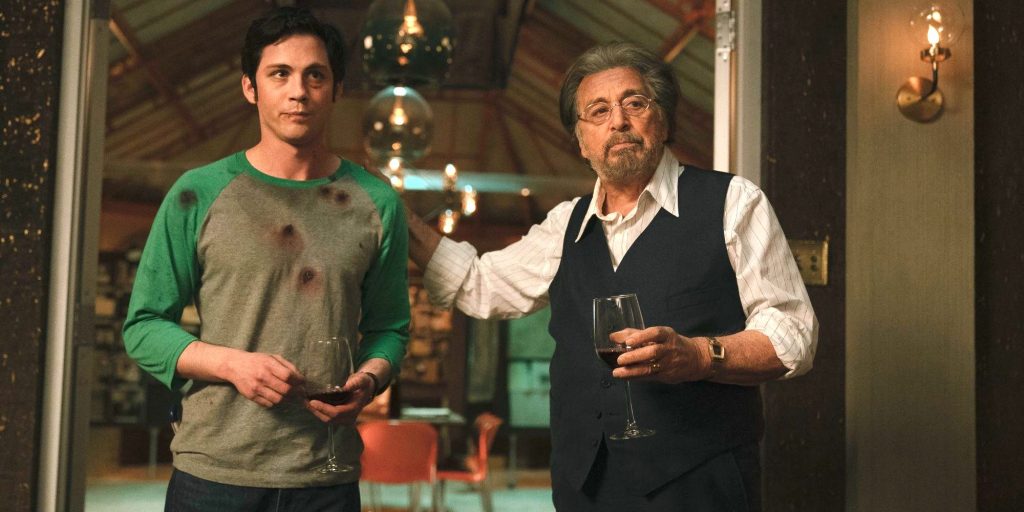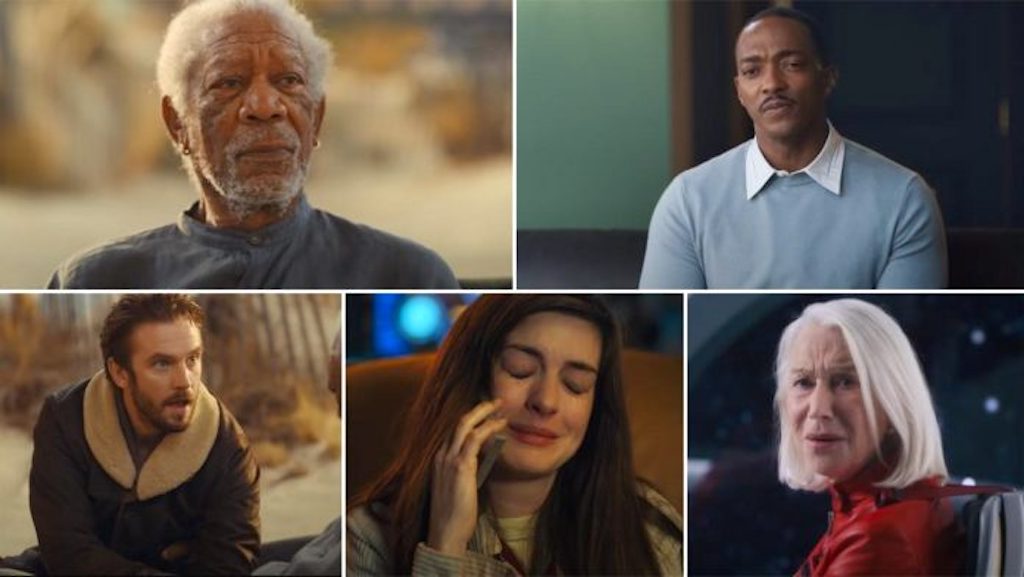“My grandmother was the finest storyteller that I knew,” said screenwriter David Weil. “My parents, my brothers — I loved the idea of a single story being able to transport me to these worlds and these emotions I had never felt or experienced before.”
Weil wanted to be able to “hold and express that power” that he saw in members of his family. He got his start acting, but eventually made his way into screenwriting, where he currently has two creator credits for Hunters and Solos, along with screenwriter credits on The Twilight Zone and Apple’s upcoming series, Invasion.
“I grew up on Long Island doing high school plays, but I was always a writer,” said Weil. “Novels and then plays. At one point, I wanted to be an actor, but I moved to Los Angeles about 11 years ago. I tutored families and every morning and night, I wrote.”
Weil’s first screenplay was called Half Heard in the Stillness. He sent this independent thriller to someone he knew in the industry and eventually the script made its way to the Blacklist. “I do believe that good material rises to the top.”
From there, Weil followed the 10-year overnight success story to get Hunters made. “It was just a bunch of small steps.” He worked on a project with Darren Aronofsky (Requiem for a Dream, Mother!) and then J.J. Abrams (Lost, Star Wars: Episode VII).
“I started working with these incredible filmmakers and being the co-writer on their passion projects taught me a great deal about filmmaking and storytelling.”
Acting and Screenwriting
“It’s nice to call me an actor,” joked Weil. “I feel like I was more of an auditioner, but certainly that experience and learning part of that craft really helped inform my writing and the dialogue, and the rhythm and music of how I like to write.”

David Weil
“Being a writer really gave me such a unique point-of-view as a filmmaker,” he said, noting that he also directed three episodes of the Amazon series, Solos.
The 7-episode series was somewhat of a right-place, right-time scenario. The story follows seven character-driven, sci-fi stories where each character goes on an adventure of an uncertain future to show how we’re all connected by the human experience.
Since the story mostly involved individual characters and monologues, it was feasible to shoot it during the quarantine in 2020. This, along with the story, attracted stars like Morgan Freeman, Anne Hathaway, Anthony Mackie, Constance Wu, and Helen Mirren, to name a few.
Writing Hunters
Weil’s grandparents were both Holocaust survivors, so in a way, the fictional story came out of real life. “To me, at the time, those stories from my grandmother felt like the stuff of heroes, or superheroes, and comic books. It was the only way as a 5-6 year old that I could comprehend the gravity of what she went through.”
Describing his 5-foot Polish grandmother as “the greatest superhero I had ever known,” Weil devised a story about a boy (Logan Lerman) who learns his grandmother is a Nazi hunter in 1977 New York City. The “hunters” are led by Al Pacino in the series.
“What a thing to grow up believing your own grandmother was a superhero with a mask and cape in her closet. But as I got older, I felt this responsibility to tell her story, especially with the rise of antisemitism in the United States and the epidemic of holocaust denial.”
As a descendent, Weil wanted to write this love letter to the survivors of his grandmother’s generation, but he also wanted to cast a wider net by writing the story within the genre element combining comic book stories with the action genre.

Jonah Heidelbaum (Logan Lerman) & Meyer Offerman (Al Pacino) in Hunters
The story, which takes place in 1977, also shows scenes from the war in the 1940s. “It was important to go on record showing how Jews were persecuted, to illuminate that story. From a dramatic point-of-view, there are challenges with two timelines, but there are also great opportunities.”
To balance these two decades, Weil said it’s important to focus on what’s most important within each timeline. “You can hone in on what’s important and use the past to inform the present and use the present to inform the past, to highlight the dialogue between the two eras.”
Writing Solos
For Solos, Weil wanted to think about what made him first fall in love with stories. “I love this idea of having one storyteller in one environment, telling them a singular tale that would transport them to worlds, and access emotions that they may not otherwise have.”
Weil joked, “I don’t think a network or streaming service has a monologue series at the top of the list for what they want to make, but I conceived and wrote this piece during the pandemic and the pandemic accelerated this shows reason for being.”
The story, which is about human connection, focused on hope during darkness. “Practically, it was also a safe way to shoot during the pandemic. How much safer can you get other than animation? It was written, shot, edited, and released during the pandemic. I’m really proud of this group coming together to do something so rare.”
“Hunters began with a premise or idea. With Solos, I began with a character, or a feeling. I thought about living in isolation and I had pushed off my wedding a number of times, so it was this crippling isolation, and this dark time for everyone around the world.”
While both stories are quite different, the connection perhaps, is that Weil felt like both stories needed to exist in the time in which they were made. “I think I begin every story like that. I have a lot of stories whirling around my head, but today in particular, there’s a need for storytellers to ask themselves, ‘Why is this story existing and why is this the time to be telling it?’ I think both of these stories check that box.”
Enticing Great Actors
“I write characters that I want to see on screen,” said Weil. “I like characters I’ve never seen before on screen. Plot is important, but I’m always character-first. Solos is a testament to that. I like exploring every nook and cranny of a character.”
“I try to find great acts of heroism in the smallest and most nuanced of moments. I love leading with details and specificity in my writing and the characters I create. I hope these great actors identify that because there’s such specificity done. I never think of characters as archetypes or prototypes or stand-ins to propel plot or propel concept.”
Weil thinks about characters as if he’s sitting across from them in a room. “How do they think? Do they bat their eyelashes? What music do they love? What’s their favorite meal?” Some of this character development came from research Weil did for producer John Lesher (Fury, Birdman).
“I was doing research for Tom Hardy, who was going to play Al Capone in a Warner Brothers Film. The work that I did for Tom was trying to understand who Capone was. What was his favorite meal? Where did his mother take him to buy shoes? What was his favorite cologne? It was understanding the actor’s process and flushing out a character. So every time I create a character, I always think about those things.”
For both of these examples, Weil was relying on others seeing his vision. For Hunters, he had the first episode written, along with an 80-page story bible, ideas for future seasons, and all of the character biographies, and ideas on tone, symbolism, and visual language. Executive Producer Jordan Peele (Get Out, Us) understood what he was going for and signed onto the project.
“I knew that I had to put it all on the page to really detail what the show would be because the show was so tonally unique and tonally different,” he said of Hunters. “For Solos, I took a similar approach. I wrote the first two episodes – Tom and Peg – and sent them to Amazon.”
What the Story Demands
Most people who are trying to get a first project made come in with small, independent film ideas, but these two stories are massive, multiple-episode shows that could be rather expensive. Weil said it’s all about the story.
“I allow the story to lead me to where it needs to go. I’ve written many small, independent films that could be shot for $5 million or less, but I always like to feel that the story demands what the story demands. Solos was not expensive. One actor, one environment. Three days per episode. Though we had A-list actors and costume design, it looks big, but in terms of budget, it wasn’t. That was a thrilling feeling to put all the money on the screen.”
“I started writing small things that I thought I could get made, but I would always encourage a writer to write something the story demands. Don’t be gratuitous about it, but you have to tell the story that you have to tell,” said the screenwriter. “Every script is a calling card.”
As for future projects, Weil said it’s often a gut decision as to which one to pursue next. “First of all, I have 15 screenplays I got a ‘No’ on that never got sold. I have an arsenal of rejections. For every piece that goes, there are 15 more scripts behind it. It is an iceberg effect, but there are many projects I’m working on, and it’s a gut thing. You can’t describe it, but it’s what you’re passionate about. I’m dreaming about it.”
“Allow your passion to dictate where you spend your time, because if you’re incredibly excited about a certain project, that enthusiasm and that love is going to come across on the page. We fall in and out of love. There are seasons to passions and what scripts we love, but if you’re in a certain season with a film you love, you should follow the passion. That can be ephemeral and you want to bottle that passion, if you can.”
This interview has been condensed. Listen to the full audio version here.

